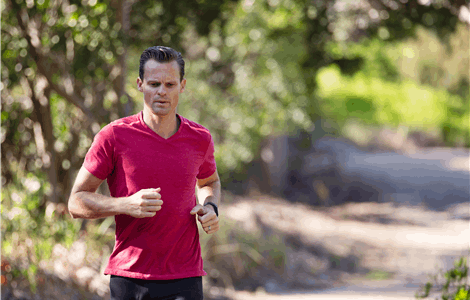
The key to staying healthy and avoiding illnesses is regular exercise. It boosts your immune system and aids in the battle against bacterial and viral infections. But what happens when you have the common cold or influenza? Our home doctor for a cold in Manilva gives us the answers here.
Can I Exercise if I Have Influenza?
Consider taking it easy. Rest allows the body to recuperate. Your immune system works best when it isn’t in overdrive.
If you have a fever, you should not exercise. The duration of a flu-related fever is typically between 2 and 5 days. It indicates that your body is fighting an infection. The body loses moisture when exposed to a high temperature. So does exercise. If you become dehydrated, it may delay your recovery.
Moreover, influenza is contagious. You can transmit the disease for up to seven days after the onset of symptoms. If you exercise in the presence of others, you should wait at least 24 hours after your fever has subsided and remained low on its own before returning to your routine.
Consult your doctor before going to the gym if you have other flu symptoms but no fever yet.
How about if I'm sick with a cold?
Generally speaking, you can do it as long as you pay attention to your body. There are some risky situations that require your attention.
Both physical activity and some cold medications can make you breathe faster. Therefore, combining exercise with a decongestant can make your heart beat rapidly. You might experience breathing difficulties and shortness of breath.
Make sure to consult your primary care physician before engaging in physical activity if you suffer from both asthma and a cold.
It could make your coughing and wheezing worse, as well as cause you to feel short of breath.
Exerting yourself physically while you have a fever could put additional strain on your body. Therefore, you should wait a few days before beginning your typical exercise routine again.
When you have a cold, you should also avoid pushing yourself too hard in the gym. It may cause your symptoms to become even more severe and may also slow down your recovery.
Excessive exercise may worsen colds
For the majority of us, it's not a concern, but if you're an exercise addict, be sure to allow yourself time for rest and recovery after sessions of intense training.
When you're not stressed, your immune system performs at its peak. According to scientists, athletes who train hard without allowing for recovery time are more likely to contract the flu or the common cold.
The amount of white blood cells in your body that fight infections can decrease during overly demanding workouts. Cortisol, a stress hormone, may increase concurrently, interfering with the proper functioning of some immune cells.
When Should You Call our Home doctor for a cold in Manilva?
If you exercise while you have a cold, you should call our home doctor for a cold in Manilva if you notice any of the following:
- Your chest feels as though it has more congestion.
- You are hacking and wheezing.
Stop your workout and seek immediate medical attention if you:
- feel pressure or tightness in the chest
- have breathing issues or become extremely breathless
- feel faint or dizzy